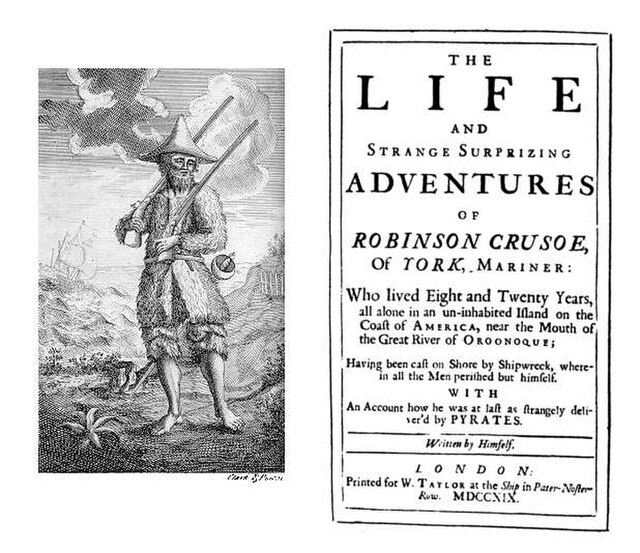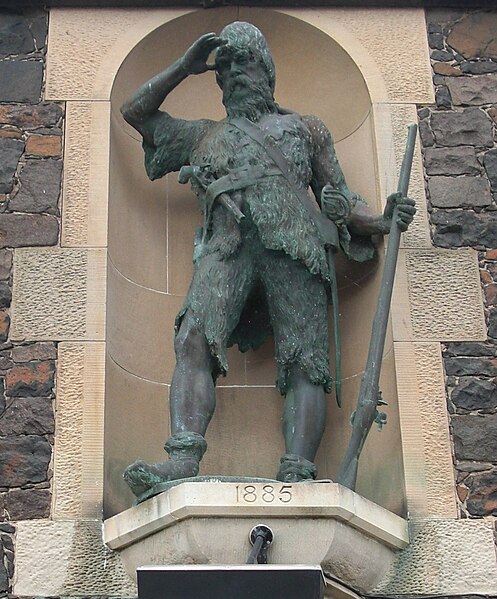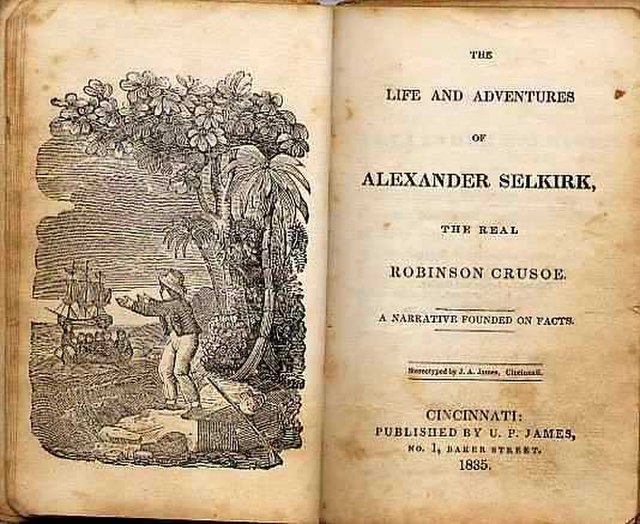Robinsonade is a literary genre of fiction wherein the protagonist is suddenly separated from civilization, usually by being shipwrecked or marooned on a secluded and uninhabited island, and must improvise the means of their survival from the limited resources at hand. The genre takes its name from the 1719 novel Robinson Crusoe by Daniel Defoe. The success of this novel spawned so many imitations that its name was used to define a genre, which is sometimes described simply as a "desert island story" or a "castaway narrative".
Robinson Crusoe in an 1887 illustration
Robinson Crusoe is an English adventure novel by Daniel Defoe, first published on 25 April 1719. Written with a combination of Epistolary, confessional, and didactic forms, the book follows the title character after he is cast away and spends 28 years on a remote tropical desert island near the coasts of Venezuela and Trinidad, encountering cannibals, captives, and mutineers before being rescued. The story has been thought to be based on the life of Alexander Selkirk, a Scottish castaway who lived for four years on a Pacific island called "Más a Tierra" which was renamed Robinson Crusoe Island in 1966. Pedro Serrano is another real-life castaway whose story might have inspired the novel.
Title page from the first edition
The route taken by Robinson Crusoe over the Pyrenees mountains in chapters 19 & 20 of Defoe's novel, as envisaged by Joseph Ribas
Statue of Robinson Crusoe at Alexander Selkirk's birthplace of Lower Largo by Thomas Stuart Burnett
Book on Alexander Selkirk





